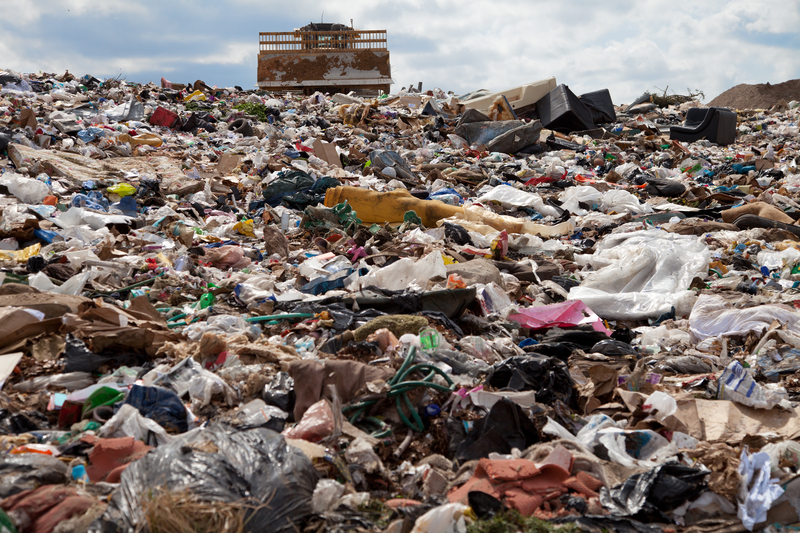Make a Difference by Disposing of PPE Waste Safely
In the wake of the COVID-19 pandemic and heightened global health concerns, the use of Personal Protective Equipment (PPE) has become a daily necessity for millions. From frontline workers to everyday citizens, masks, gloves, gowns, and face shields are now part of our regular routines. However, with this increased use comes a significant surge in PPE waste. Safe PPE waste disposal is essential--not only to safeguard human health but also to protect the environment. How can we all make a difference by disposing of PPE waste safely? This comprehensive guide will explain why managing PPE waste is crucial, explore the environmental challenges posed by improper disposal, and share best practices for safe, responsible, and sustainable PPE waste management.

Why Is Safe PPE Waste Disposal Important?
The disposal of PPE waste may seem straightforward, but its impact stretches far beyond our immediate surroundings. PPE like masks, gloves, and gowns are frequently composed of non-biodegradable plastics such as polypropylene. When not disposed of responsibly, these materials can pose substantial hazards to our health, wildlife, and ecosystems.
- Health Risks: Used PPE can carry harmful pathogens, posing a risk of cross-contamination and infection if not handled and discarded properly.
- Environmental Damage: PPE that ends up in landfills, streets, or water bodies can take centuries to decompose, contributing to plastic pollution and harming marine and terrestrial wildlife.
- Waste Management Challenges: The sheer volume of PPE waste has placed unprecedented strain on waste management systems worldwide, making effective strategies essential.
Proper PPE waste disposal doesn't just protect you--it has a ripple effect, ensuring safer communities and a cleaner, healthier planet.
Types of PPE Waste
Understanding what constitutes PPE waste is vital for effective disposal. Below are some common types of personal protective equipment that require responsible handling:
- Masks: Disposable surgical masks, N95 respirators, and cloth masks.
- Gloves: Single-use latex, nitrile, and vinyl gloves.
- Gowns and Aprons: Often used in healthcare, they can also be required in certain workplaces.
- Face Shields and Goggles: Used to protect the face and eyes from droplets.
- Shoe Covers and Caps: Frequently used in medical settings.
Most of these items are intended for single use and are made from synthetic materials, which makes proper PPE waste disposal even more important.
Environmental Impact of Improper PPE Disposal
The Plastic Pollution Crisis
The world produces millions of tons of PPE waste annually. Much of this waste is non-recyclable and non-biodegradable. When PPE is not disposed of safely, it often ends up in our rivers, oceans, and natural landscapes. Statistics suggest that over 1.6 billion disposable masks entered the oceans in 2020 alone. These plastic pollutants threaten marine life, with animals often mistaking PPE for food or becoming entangled.
Microplastics and Human Health
As PPE materials break down, they fragment into microplastics--tiny particles that persist in the environment. Microplastics have infiltrated our food chain, water sources, and even the air we breathe. Studies link microplastic exposure to potential health effects, making safe PPE waste management practices essential for long-term well-being.
Strategies for Disposing of PPE Waste Safely
1. Educate Yourself and Others
Awareness is the first step towards effective action. Share knowledge with your family, friends, and colleagues on the importance of disposing of PPE safely. Encourage others to adopt safe habits and lead by example.
2. Use Dedicated PPE Waste Bins
One of the simplest ways to mitigate the risks of PPE waste is to use specifically marked bins for collection. Many cities now provide PPE waste bins in public areas, hospitals, and businesses.
- At Home: Designate a separate bin lined with a strong plastic bag for PPE waste. Avoid mixing PPE with general recyclable waste.
- At Work: Employers should ensure easily accessible and well-labeled PPE disposal points.
- In Public Places: Utilize public PPE bins whenever available, and encourage local authorities to increase their numbers.
3. Handling and Bagging PPE Waste Properly
- Always wash or sanitize hands immediately after handling used PPE.
- Place used PPE into a strong, leak-proof plastic bag. If you have potentially contaminated PPE (such as after caring for a sick person), double-bagging is recommended.
- Seal the bag tightly before disposing it into your regular trash (do not recycle used PPE unless specifically instructed).
- Clearly mark the bag if the PPE waste is known to be contaminated, to alert waste handlers.
4. Never Litter PPE
Littering PPE is dangerous. Used masks, gloves, and gowns left in public spaces or on streets are not just unsightly; they present real biohazard risks and environmental harm. Ensuring PPE ends up in the correct bin is a simple way to protect your community.
5. Do Not Flush PPE Down Toilets
Flushing masks, gloves, or wipes can clog sewage systems and contribute to marine pollution. Always dispose of PPE in a designated bin.
6. Special Handling for Medical and Contaminated Waste
Medical facilities must comply with local regulations for hazardous or potentially infectious waste. This often includes autoclaving, incineration, or specialized landfill arrangements. Home caregivers looking after someone ill should also treat used PPE as potentially infectious and follow appropriate double-bagging and marking procedures.
Innovative Solutions for Sustainable PPE Waste Management
Recycling and Repurposing Efforts
While most disposable PPE is not designed for recycling, companies and research bodies have begun experimenting with advanced materials recovery techniques. Some initiatives include:
- Chemical Recycling: Breaking down PPE plastics into raw materials for new products.
- Material Recovery Facilities: Specialized plants sort and treat PPE waste to retrieve reusable materials.
- Upcycling Programs: Innovative organizations are exploring ways to transform used masks into construction materials or paving mixtures.
*Participation in such programs*, where available, can further reduce the environmental burden of PPE.
Compostable and Biodegradable PPE
The PPE industry is evolving, with more eco-friendly equipment becoming available. Biodegradable masks and gloves, made from plant-based polymers, provide a sustainable option. However, even with biodegradable PPE, safe disposal is key--they require specific composting conditions to break down effectively.
Reducing Unnecessary PPE Use
Not all situations require single-use PPE. Whenever it is safe and appropriate, opt for:
- Reusable, washable masks and eyewear for non-medical purposes.
- Regular laundering following health guidelines to maintain hygiene.
- Reducing overuse of gloves by focusing on regular hand hygiene where gloves are not essential.
Legal Requirements And Guidance
Many countries and localities have issued directives for handling, segregating, and disposing of PPE waste. Adhering to these regulations not only maintains public health but also avoids legal penalties. Check with your municipal waste authority or local government for the most up-to-date information on:
- PPE waste collection schedules.
- Designated drop-off points for medical or hazardous waste.
- Sustainable disposal policies and available recycling initiatives.
Employers and facility managers should conduct regular training and provide clear signage to promote compliance.

The Role of Individuals, Communities, and Organizations in PPE Waste Disposal
What You Can Do
- Always use the correct bin for PPE disposal.
- Educate friends, family, and colleagues about safe PPE disposal practices.
- Choose reusable PPE options where possible.
- Participate in or organize local clean-up drives focusing on littered PPE waste.
- Support businesses and policies that promote environmentally responsible PPE disposal.
How Businesses and Employers Can Make a Difference
- Install dedicated PPE waste bins in workplaces and public areas.
- Provide training on PPE waste handling and ensure compliance with regulations.
- Work with certified waste management companies to handle large volumes of PPE waste responsibly.
Conclusion: Make a Lasting Impact with Every Piece of PPE
Safe PPE waste disposal is not just a public health necessity--it's a moral responsibility. Each mask, glove, or shield disposed of responsibly helps prevent disease transmission, protects wildlife, and keeps our communities clean. By staying informed, choosing reusable or biodegradable options when possible, and following best disposal practices, we can all make a significant difference.
Every small action counts. By making safe PPE waste disposal a daily habit, you are contributing to a healthier planet and a safer future for everyone. Let's all commit to disposing of PPE waste safely and inspire others to join in this crucial global effort.